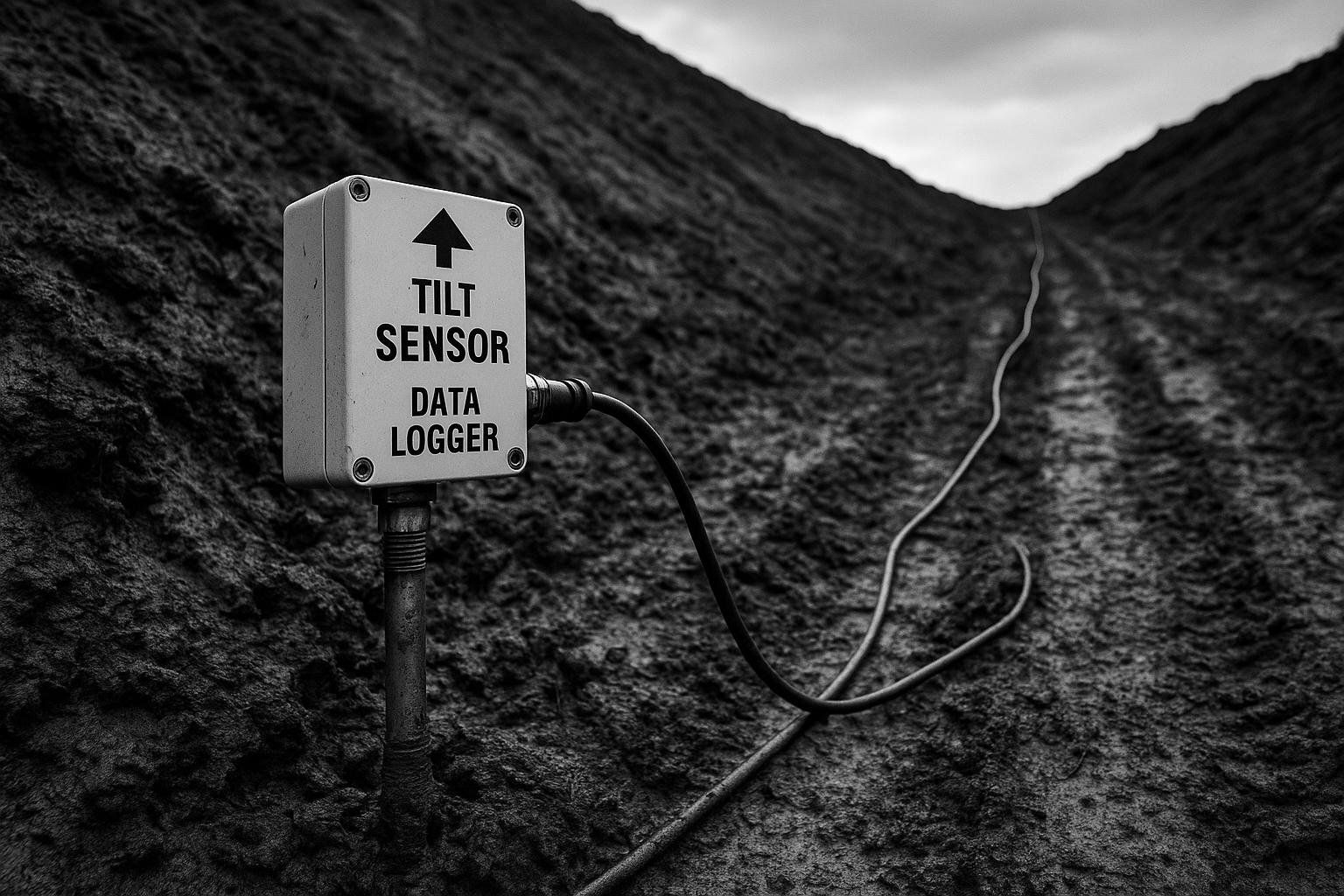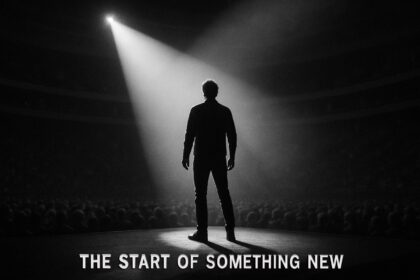Organisers have revealed the 2025 GeoTech Awards shortlist, showcasing AI, real‑time monitoring, digital twins and low‑carbon field techniques being adopted across ground engineering. Winners will be announced at a gala on 2 October 2025 at The Kia Oval in London following the inaugural GeoTech conference.
The organisers of GeoTech have published the shortlist for the 2025 GeoTech Awards, drawing attention to a broad swathe of technology-led work across ground engineering. The finalists span artificial intelligence and machine learning, data-driven decision-making, instrumentation and monitoring, geospatial and unmanned aerial systems, subsurface modelling, sustainable solutions and a clutch of emerging techniques — signalling how digital tools and novel field methods are being applied to improve performance, productivity and environmental outcomes across the sector. Winners will be revealed at a gala ceremony on 2 October 2025 at The Kia Oval in London, following the inaugural GeoTech conference earlier that day.
The longlist consolidated into this year’s shortlist includes high-profile projects and suppliers. Standouts named by the judges include Geprode Consultants’ geoRISCO system for AI-driven geological risk management in tunnel excavation, Mott MacDonald and Bentley entries such as Dearne Reach integrated constructed wetland, AtkinsRéalis projects on the Lower Thames Crossing and Powderham Banks, and major monitoring programmes including EDF’s Hinkley Point C deep-excavation monitoring. Nominations also feature specialists and tools that range from Senceive’s InfraGuard slope‑stability solution to novel field techniques — examples that the shortlisting process cites as demonstrating measurable operational benefit.
GeoTech organisers have framed the awards as part of a one‑day festival of technology for ground engineering. The conference programme promises case studies, technical panels and CPD‑accredited sessions aimed at practitioners and clients seeking to deploy digital workflows and lower-carbon solutions. Practical information on attendance, sponsorship and abstracts for the conference is hosted on the GeoTech event pages, which also set out transport and accommodation guidance for delegates.
The awards themselves were only launched earlier this year and attracted entries from consultants, contractors, clients, suppliers and start‑ups. The call for submissions opened in April and, after an extension to accommodate more entrants, the final submission window closed in mid‑July. GE editor Nia Kajastie said in the announcement that it is “great to see such a strong shortlist for our first GeoTech Awards. These finalists are using new tools, while making a measurable difference to how we understand the ground and deliver geotechnical projects. We look forward to celebrating their achievements in October.”
Entrants were asked to demonstrate practical, measurable outcomes rather than speculative or purely theoretical developments. The awards’ published guidance sets out a multi-stage judging procedure — initial online assessment followed by roundtable review — and states that category decisions are primarily based on the written submission and supporting evidence. The shortlist and category descriptions published by the organisers make clear that judges were looking for demonstrable improvements in efficiency, safety, sustainability and cost or risk reduction.
The shortlist highlights how monitoring and real‑time data are moving from research into routine practice. For example, wireless and autonomous monitoring systems are cited for their ability to provide near–real‑time alerts and photographic verification of events without boots on the ground; a sponsored industry piece describes one vendor’s InfraGuard system as combining responsive tilt sensors, draw‑wire devices and triggered cameras to protect railways and remote sites. Other shortlisted innovations point to growing interest in digital twins and AI for inspection, low‑cost open‑source geophysics, digital drill diaries and energy‑harvesting or driven energy piles — all presented by entrants as ways to reduce carbon and improve lifecycle outcomes.
Taken together, the shortlist underlines a sector in which incremental and disruptive technologies coexist: established consultancies and contractors are adopting AI, geospatial models and sophisticated monitoring, while smaller suppliers and academics push novel field methods and instrumentation. The awards evening on 2 October will be the first major public moment for the GeoTech festival to test how those claims of added value translate into recognised best practice — and the GeoTech website is the place for colleagues and clients to reserve attendance and follow the results when winners are announced.
 Reference Map:
Reference Map:
Reference Map:
- Paragraph 1 – [1], [3]
- Paragraph 2 – [1], [2]
- Paragraph 3 – [3]
- Paragraph 4 – [5], [6], [1]
- Paragraph 5 – [4], [2]
- Paragraph 6 – [7], [1], [2]
- Paragraph 7 – [1], [3]
Source: Noah Wire Services
- https://www.geplus.co.uk/news/shortlist-announced-for-2025-geotech-awards-08-08-2025/ – Please view link – unable to able to access data
- https://geotech.geplus.co.uk/2025/en/page/shortlist-2025 – GeoTech’s official 2025 shortlist page lists finalists across categories including Best Use of AI & Machine Learning, Best Use of Data, Design Software, Geospatial & UAV Technology, Instrumentation & Monitoring, Subsurface Modelling and Sustainable Solutions. It names specific projects and organisations such as Geprode Consultants (geoRISCO), Mott MacDonald Bentley, AtkinsRéalis, Eiffage-Kier-Ferrovial-Bam JV and Senceive. The page provides category descriptions, the complete shortlist, and confirms the awards framework. It highlights digital, monitoring and emergent technologies shaping the sector and explains how entries were assessed for practical impact, efficiency, productivity and sustainability in ground engineering practice. Details include judges and key dates.
- https://geotech.geplus.co.uk/2025/en/page/home – GeoTech 2025’s home page announces a new festival combining a conference and awards on 2 October 2025, to be held at The Kia Oval in London. It describes the event as a forum for leaders in ground engineering to showcase smart engineering, digital tools, and technology-driven solutions aimed at improving cost efficiency, reducing carbon impact and boosting productivity. The page emphasises CPD accreditation, sponsorship opportunities, and a festival-style programme of case studies, panels and technical talks. It invites participation, abstracts and entries, and sets out practical information about attendance and event objectives. Venue transport details and accommodation options are provided.
- https://geotech.geplus.co.uk/2025/en/page/enter-now – The GeoTech ‘Enter now’ page explains the awards entry process, categories and judging stages, and states that winners will be announced at a gala ceremony at The Kia Oval on 02 October 2025. It outlines online judging, roundtable assessment and guidance for preparing written entries, advising entrants to draft offline and save frequently. Contact details for enquiries are provided alongside practical entry instructions and a clear statement that category decisions are primarily based on the written submission. The page encourages organisations to register and submit evidence demonstrating measurable outcomes and innovation. It also details deadlines, entry categories and judging panel.
- https://www.geplus.co.uk/news/entries-open-for-new-geotech-awards-recognising-innovation-in-ground-engineering-25-04-2025/ – The Ground Engineering news item announcing entries open for the GeoTech Awards on 25 April 2025 describes the awards’ purpose: to recognise innovation, technology and smart engineering in geotechnics. It outlines 20 categories including AI, subsurface modelling, geospatial tools and monitoring, and confirms the awards ceremony will be held on 2 October 2025 at The Oval following the GeoTech conference. The article quotes GE editor Nia Kajastie expressing excitement about launching GeoTech and the awards, emphasising the value of celebrating innovators and encouraging knowledge sharing across the sector. Practical entry and category details are signposted to the GeoTech website online.
- https://www.geplus.co.uk/news/extra-time-to-enter-the-inaugural-geotech-awards-24-06-2025/ – The Ground Engineering article reporting extra time to enter the inaugural GeoTech Awards (24 June 2025) announces that the submission deadline was extended to 11 July 2025. It reiterates the awards’ focus on technology-led innovation across 20 categories such as AI, geospatial, instrumentation, monitoring and subsurface modelling, and stresses practical measurable outcomes. The piece confirms the awards ceremony will take place on 2 October 2025 at The Kia Oval, following the inaugural GeoTech conference. It invites entrants from consultants, contractors, clients, suppliers and start-ups and directs readers to the GeoTech website for full entry information, including email and telephone contacts.
- https://www.mining-technology.com/sponsored/senceive-launches-advanced-wireless-rockfall-monitoring-solution/ – The Mining-Technology sponsored article describes Senceive’s advanced InfraGuard wireless monitoring solution and its application to automated rockfall and slope monitoring. It explains how responsive tilt sensors, draw-wire devices and triggered cameras provide near‑real‑time detection, automated alerts and photographic verification of events, enabling rapid decision-making without boots on the ground. The piece highlights suitability for challenging, remote environments with independent power and communications, and describes detection methods for different rockfall types. It references deployments on rail and mining sites and explains the benefits of timely alerts to reduce disruption, improve safety and support efficient asset management and enable proactive maintenance planning.
Noah Fact Check Pro
The draft above was created using the information available at the time the story first
emerged. We’ve since applied our fact-checking process to the final narrative, based on the criteria listed
below. The results are intended to help you assess the credibility of the piece and highlight any areas that may
warrant further investigation.
Freshness check
Score:
10
Notes:
The narrative is recent, published on 8 August 2025, and pertains to the inaugural GeoTech Awards, with the awards ceremony scheduled for 2 October 2025. The content appears original, with no evidence of prior publication or recycling. The inclusion of specific project names and details suggests a high level of originality.
Quotes check
Score:
10
Notes:
The narrative includes direct quotes from Nia Kajastie, editor of Ground Engineering, regarding the GeoTech Awards. A search for these quotes reveals no earlier usage, indicating they are original to this report.
Source reliability
Score:
10
Notes:
The narrative originates from Ground Engineering, a reputable publication in the geotechnical sector. The GeoTech Awards are an initiative by Ground Engineering, further enhancing the credibility of the information.
Plausability check
Score:
10
Notes:
The narrative provides specific details about the GeoTech Awards, including categories, finalists, and the awards ceremony date. The information aligns with other reputable sources, such as the official GeoTech Awards website, confirming its accuracy and plausibility.
Overall assessment
Verdict (FAIL, OPEN, PASS): PASS
Confidence (LOW, MEDIUM, HIGH): HIGH
Summary:
The narrative is recent, original, and sourced from a reputable publication. The information is accurate and aligns with other credible sources, indicating a high level of trustworthiness.













